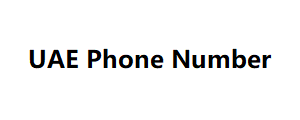The terrifying reality of new As the founder of Robotic Marketer, I’ve had a front-row seat to a recurring and rather daunting reality: new marketers entering the workforce full of enthusiasm and confidence, only to be swiftly deflated by the complexities and demands of a real job. It’s a cycle I’ve seen play out time and time again. Fresh graduates, armed with their degrees and internships, step into their new roles as a marketing hire, expecting to conquer the marketing industry. But within days, they’re confronted with the harsh truth – they don’t know nearly as much about marketing as they thought. Worse still, they have an idealistic view of marketing as seen on TikTok that is far from reality. It’s definitely not all fun and games in marketing.
The Beginning Can Be the End in Marketing
Let’s start at the beginning. Graduates step into their new jobs filled with excitement and self-assurance. They’ve spent years studying marketing theories, acing exams and completing internships. They’ve developed marketing plans, participated in group projects and received positive feedback from their professors. They feel ready to hit the ground running, to make an impact and to apply all they’ve learned in a real-world setting.
This initial confidence is vital. It’s what drives them to take on new challenges and to push themselves to excel. But this confidence is often built on a foundation that’s not as solid as it appears. The marketing industry keeps changing at a swift speed, and what’s taught in classrooms often lags behind what’s happening in the industry. Graduates quickly find that the theories and strategies they’ve learned don’t always align with the practical nature of modern marketing.
The Stark Realization for Marketing Hires
Within days of starting their new roles, the realization sets in for new marketing hires. The strategies they studied are outdated, the tools they used in school are rudimentary compared to the sophisticated technologies their companies use and social media is much more complex than they imagined. Beyond their favorite platforms like Instagram or Twitter, they’re at a loss. They thought they’d be mastering the art of marketing strategy, but they find that AI is already doing much of this work. They expected to write engaging content, yet AI tools are churning out articles, blogs and social media posts at an astonishing rate. This leads to an inevitable question: where do they fit in this new equation?
The Role of AI in Marketing
AI is reshaping the marketing industry and the roles in it. From data analysis to content creation, AI tools are becoming indispensable. They can analyze vast amounts of data far more quickly and accurately than any human, providing insights that are used to create highly targeted marketing strategies. AI algorithms can predict consumer behavior, optimize ad placements and even personalize marketing messages to individual users. To think that we have built a software that takes companies from strategy to execution to reporting – automated from start to finish – was unfathomable just 2 years ago. Now it is a reality.
For content creation, AI can generate everything from blog posts to social media updates. These AI-generated pieces are often indistinguishable from those written by humans, and they can be produced in a fraction of the time. This efficiency and scalability are why many companies are adopting AI tools for their marketing efforts.
For new marketing hires, this can be overwhelming. They’ve entered the field expecting to develop and execute marketing strategies, only to find email list that AI is doing much of this work. They anticipated writing content, but AI is already handling this task as well. It’s a disorienting experience and one that can lead to a significant amount of anxiety.
Managing Anxiety and Overwhelm as a New Marketing Hire
The initial excitement quickly gives way to anxiety. The fear of displacement looms large. New marketing hires find themselves questioning their maximizing your marketing potential with seo: a complete guide place in this new equation. They wonder if their jobs will be replaced by machines, if they’ll ever be able to keep up with the rapid pace of technological advancements and if they’re even cut out for this industry. Reading books like “Untethered Soul” by Michael Singer or “Atomic Habits” by James Clear can be helpful in managing this type of anxiety.
Managing this anxiety and sense of overwhelm is hard even for seasoned professionals. Here are some strategies that can help:
1. Take Up Lifelong Learning
Marketing changes at a swift speed, and staying stagnant is not an option if you want to stay in a job. Make sure you “own” a continuous learning mindset. Online courses, webinars and industry blogs are invaluable resources. Platforms like Google, Hubspot, Robotic Marketer, Coursera, Udemy and LinkedIn Learning offer courses gt lists on the latest marketing trends and technologies. Subscribe to industry publications like Marketing Week, AdAge, Robotic Marketer’s blog and HubSpot’s blog to stay updated with the latest developments. Attend industry conferences and networking events to gain new insights and perspectives.
2. Develop Technical Skills
Familiarize yourself with AI tools and technologies. Understanding how AI works and how to use it can give you a competitive edge. Tools like Google Analytics, HubSpot, and SEMrush are essential for data analysis and SEO. Learn how to use social media management tools like Hootsuite and Buffer. Understanding the basics of coding and data analysis can also be incredibly beneficial. Platforms like Robotic Marketer’s “Come Market Your Business With Me” offer courses specifically designed for marketers looking to improve their technical skills.
3. Seek Mentorship
Find a mentor within your organization or industry. Their experience and guidance can provide you with valuable insights and help you overcome the complexities of your new role. A mentor can offer practical advice, share their own experiences and provide support during challenging times. They can also help you build your professional network and introduce you to key industry contacts.
4. Focus on Creativity and Strategy
While AI can handle data and repetitive tasks, creativity and strategic thinking are areas where humans excel. Hone these skills. Focus on developing innovative campaigns and thinking outside the box. Creativity involves not only generating new ideas but also combining existing ideas in new ways. Strategic thinking involves understanding the bigger picture, identifying opportunities and making decisions that align with long-term marketing goals of the organization. These skills are highly.


